Wish to pass on the profession to children and grandchildren
Although she is 73 years old this year, every day Mrs. Thi Broh, a M'nong ethnic group in Me Ra hamlet, Dak R'tih commune (Tuy Duc) diligently weaves brocade. Her skillful hands have created unique fabrics imbued with the identity of the M'nong ethnic group.
While skillfully threading the thread, Mrs. Thi Broh confided: “In the past, almost every family had a woman who knew how to weave. After returning from the fields or in their free time, everyone would invite each other to weave and talk about family, life was very happy. Over time, many families no longer teach their children how to weave. Her family, however, still sticks to the profession and has additional income from it until today.”
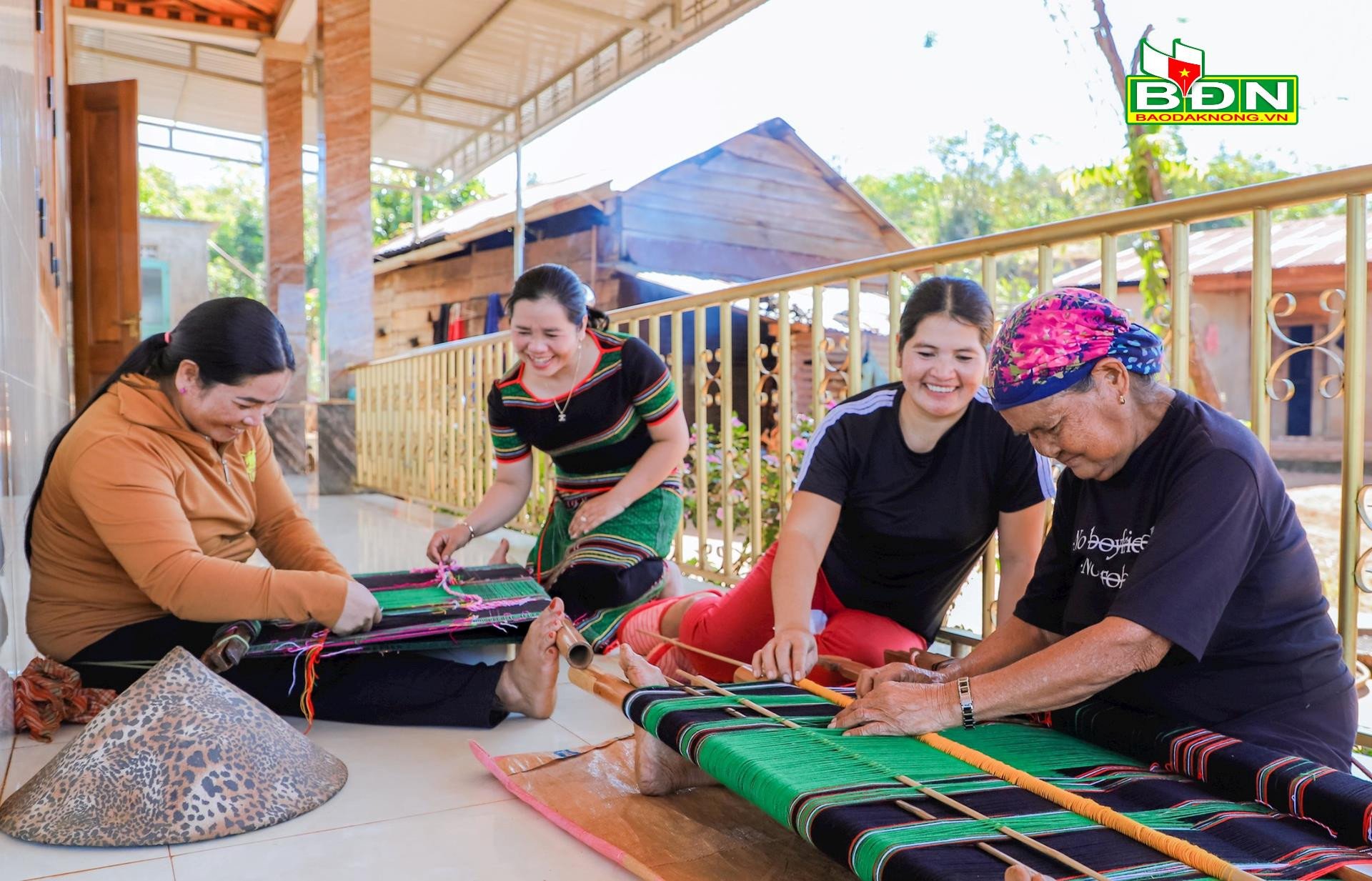
To make her children willing to learn and keep the profession, Mrs. Thi Broh always advised and diligently told her children and grandchildren about the ancient culture of her people. For her, brocade weaving not only serves the need for clothing in daily life but also conveys many feelings for relatives and the village. Wishing to preserve the cultural beauty of her people, Mrs. Thi Broh also directly taught her two daughters Thi Phang and Thi Nonh how to weave brocade.
Having loved weaving brocade since she was a child, whenever she saw her grandmother and mother weaving, Thi Phang would sit and watch and learn from her. With her mother's guidance and training, Thi Phang became Thi Broh's successor and became a famous weaver in the area. Now, whenever the farming season is off, Thi Broh feels happy to have her daughter sitting and talking to her while weaving.
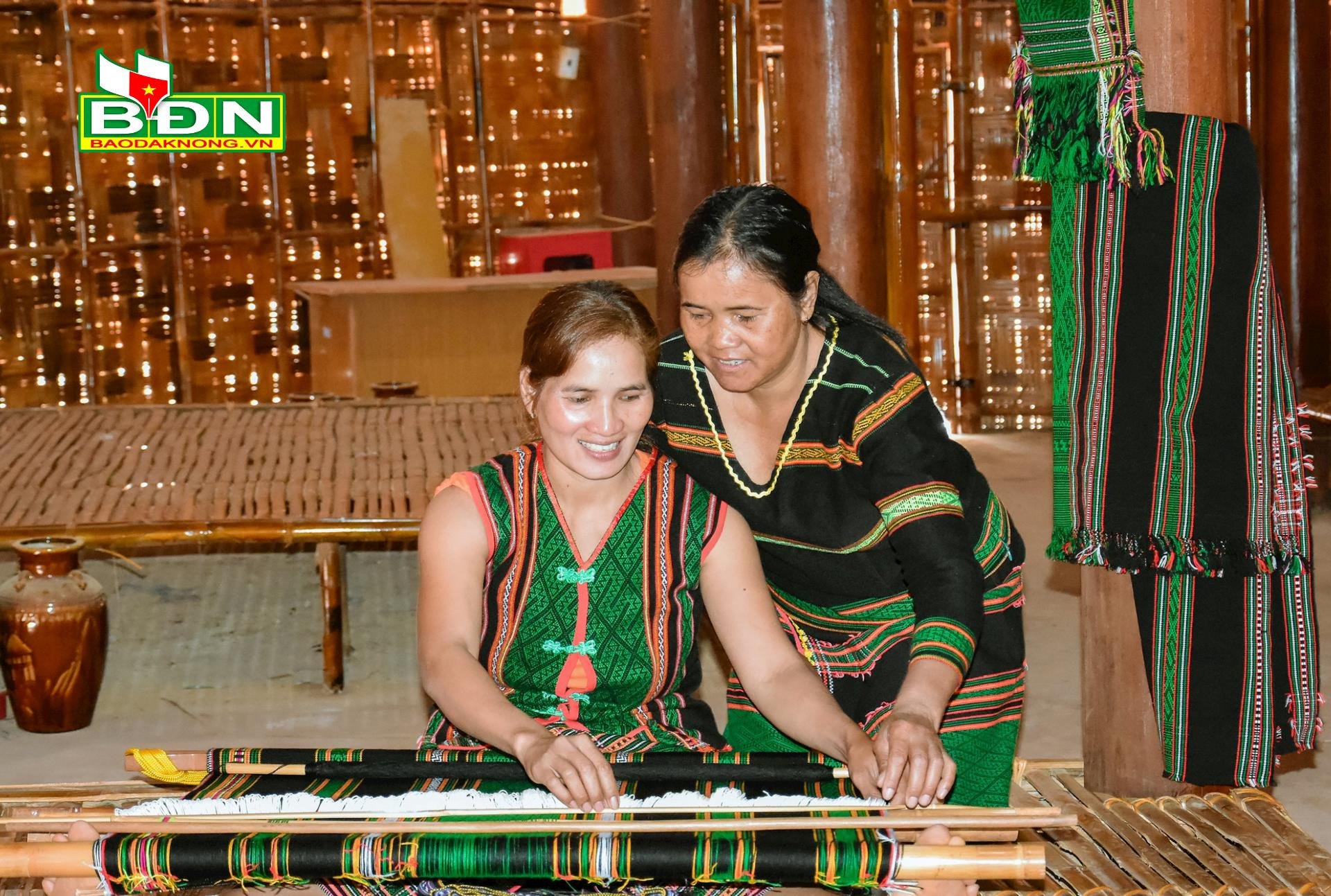
Similarly, every time she receives an order to weave fabric, Ms. H'Yon in Bon Pi Nao, Nhan Dao Commune (Dak R'lap) is very happy because people still remember the traditional craft and traditional costumes of her people. She is even happier because her two daughters and granddaughter in the family are willing to learn the craft of brocade weaving. However, the worry about the disappearance of the traditional weaving craft of her people still haunts the heart of this woman who has devoted her whole life to the loom.
H'Yon confided: “I have passed on all my experiences to my children and grandchildren, hoping that in the future, my children and grandchildren in my village will still know how to weave, preserving the traditional craft of their grandparents. Although my two daughters H'Luất and H'Lê already know how to weave, they are not yet proficient in the patterns because they have to work and do not have time to weave regularly. My granddaughter H'Tho, who is 10 years old this year, also loves weaving and has learned how to weave proficiently; participating in movement activities and brocade weaving competitions at school and in the locality. I want my children and grandchildren to know how to weave, but I am afraid that nowadays, young people are too focused on economic activities and will give up the profession. When the weaving products have no output or are only marginal, children who do not weave regularly may forget and lose the motivation to keep the profession. Unlike me, who do it out of passion, I have been able to keep it.”
Promoting the values left by our ancestors
The traditional occupations of the M'nong ethnic group reflect the community's daily life in a compatible relationship with the living environment, accumulated and preserved throughout the entire historical development process. Today's youth are somewhat economically oriented, so artisans are also very concerned about developing traditional occupations. In addition to the system of solutions and policies to preserve this fine cultural value of the people, promoting the role of the family in preserving traditional occupations needs to be emphasized. The family is an important environment for formation, nurturing, transmission, and absorption in the most natural way.
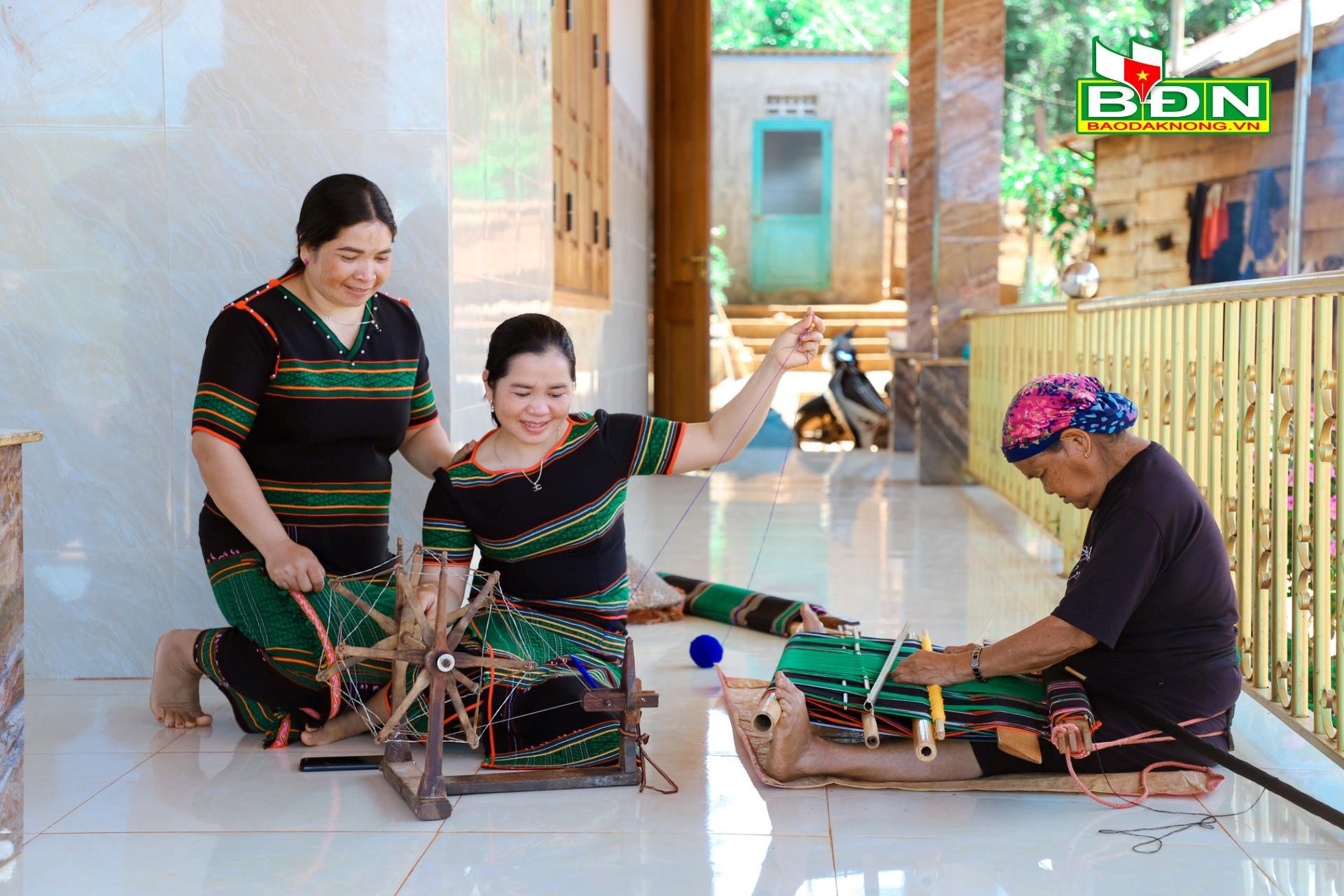
Ms. H'Juel, M'nong ethnic group, Nghia Trung ward (Gia Nghia) followed her parents and relatives to learn how to make rice wine using the traditional recipe of her ethnic group.
H'Juel shared: “When I was at my mother's house, I also saw how to make rice wine. After getting married, my mother-in-law H'E, who is famous for making good rice wine, taught me more. I realized the good things, the beauty, the knowledge about nature, life, and the experience that our ancestors had accumulated for thousands of years. Since then, I have grown to love and be passionate about making rice wine. I often follow my uncles and aunts in the family in the communes of Quang Son, Dak R'mang (Dak Glong) such as K'Djay, H'Jang... into the forest to pick leaves and tree bark to make rice wine yeast."
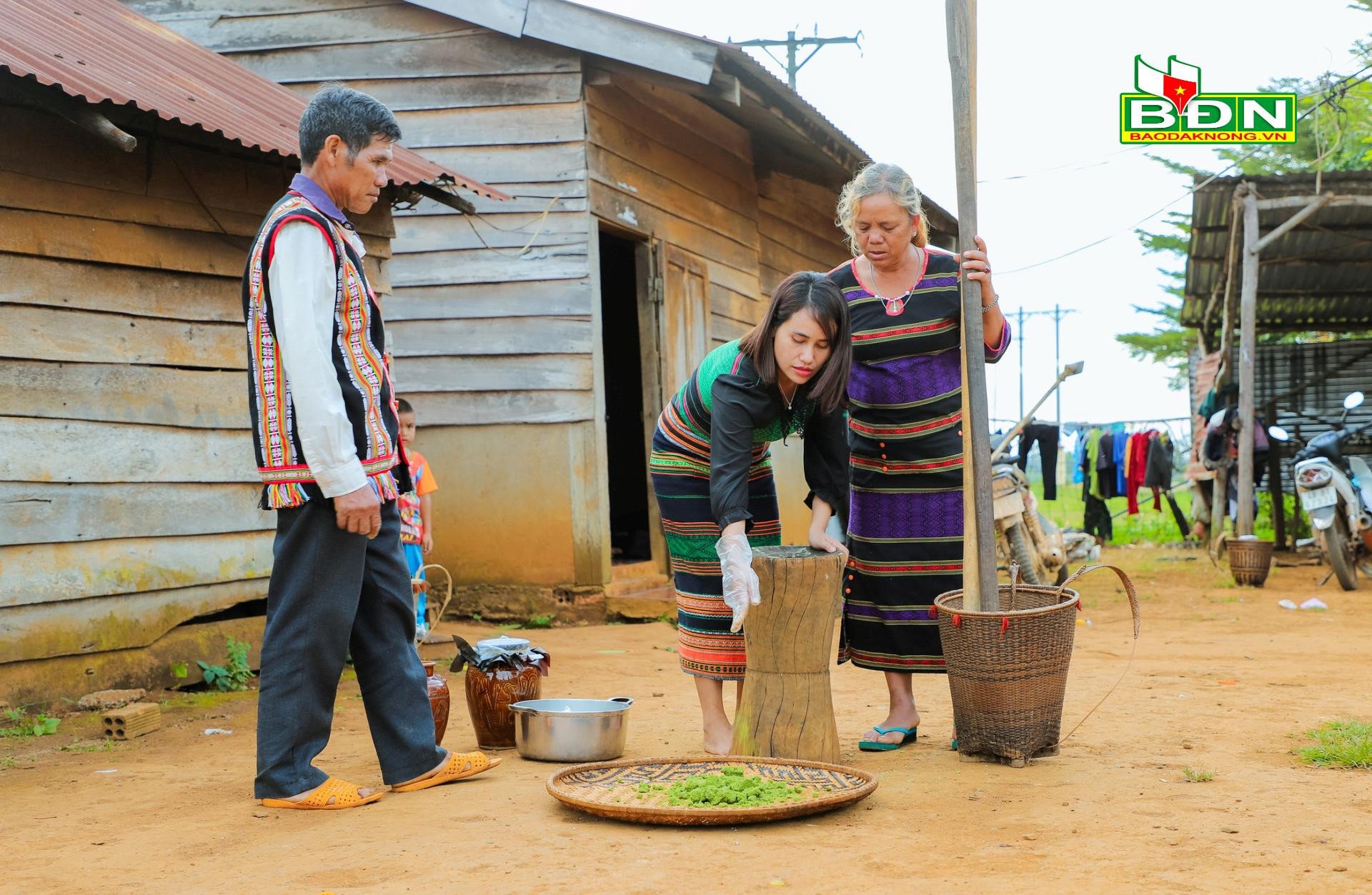
Not too concerned about the economic issue, but from her love and quickness about the prospects of jars of wine, H'Juel followed her family's tradition of making wine in a systematic way. H'Juel kept the uniqueness of M'nong wine by making wine yeast from leaves and bark of forest trees, bringing quality and delicious flavor. The meticulously made jars of wine are of high quality, the water is golden yellow, sweet and popular. To meet current market demand, she also developed bamboo tube wine products, which received positive feedback from customers.
Her product, named Leng Gung, has gone beyond the market in Dak Nong province, reaching consumers in provinces such as Quang Ngai, Da Nang, Ho Chi Minh City... H'Juel also established LENG GUNG LLC, specializing in producing and supplying rice wine, bamboo shoots, betel leaves, bamboo rice, grilled chicken, traditional brocade, rattan and bamboo products... Thereby, not only preserving the M'nong cultural identity but also contributing to introducing, promoting, and bringing M'nong culture to more people.
Talking about preserving traditional M'nong culture and the wine making profession in particular, H'Juel said: "If young people like us can preserve traditional culture such as language, writing, traditional professions, etc., we can preserve the soul of our nation."
Source




![[Photo] "Beauties" participate in the parade rehearsal at Bien Hoa airport](https://vstatic.vietnam.vn/vietnam/resource/IMAGE/2025/4/11/155502af3384431e918de0e2e585d13a)
![[Photo] Looking back at the impressive moments of the Vietnamese rescue team in Myanmar](https://vstatic.vietnam.vn/vietnam/resource/IMAGE/2025/4/11/5623ca902a934e19b604c718265249d0)









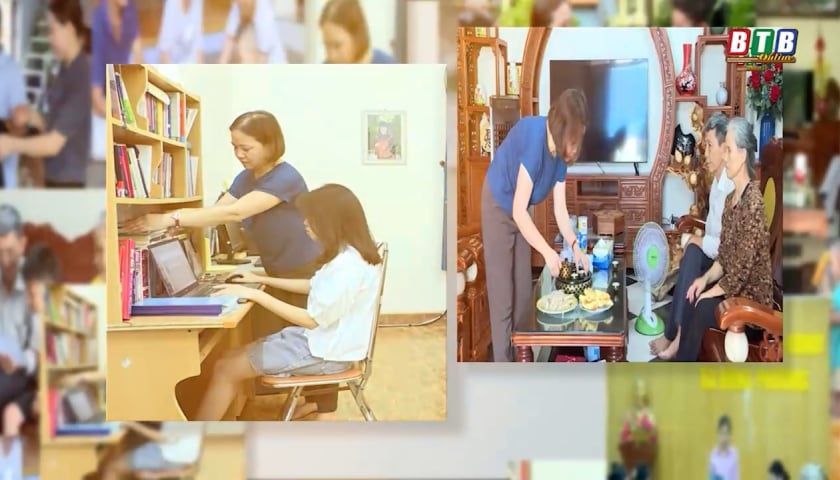









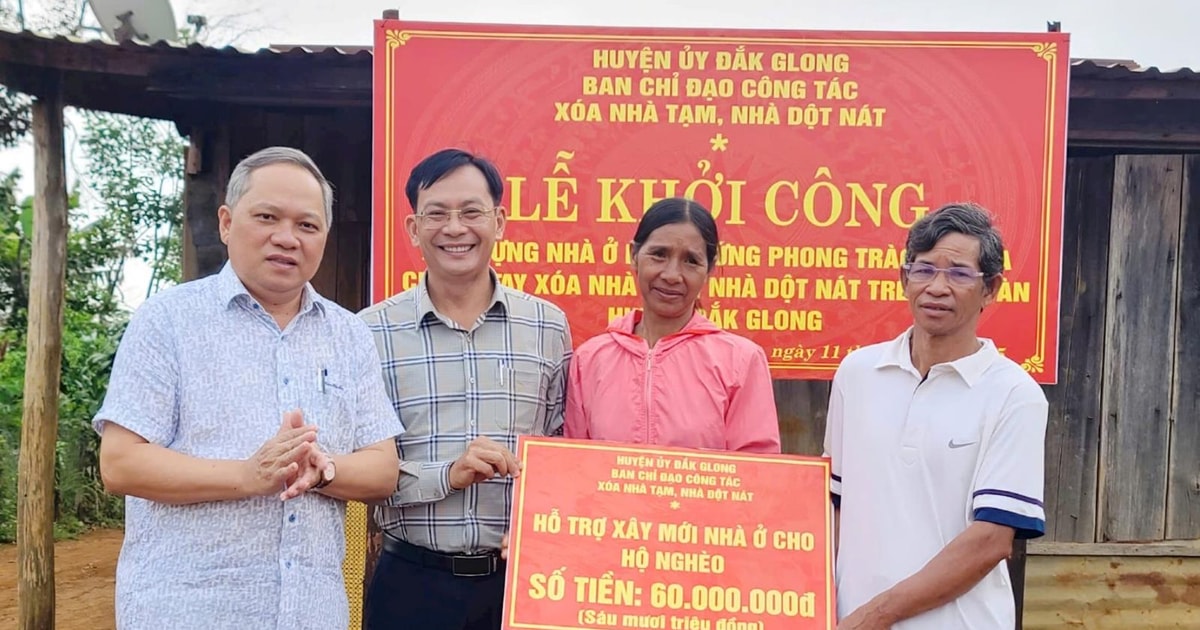




![[Photo] Summary of parade practice in preparation for the April 30th celebration](https://vstatic.vietnam.vn/vietnam/resource/IMAGE/2025/4/11/78cfee0f2cc045b387ff1a4362b5950f)














































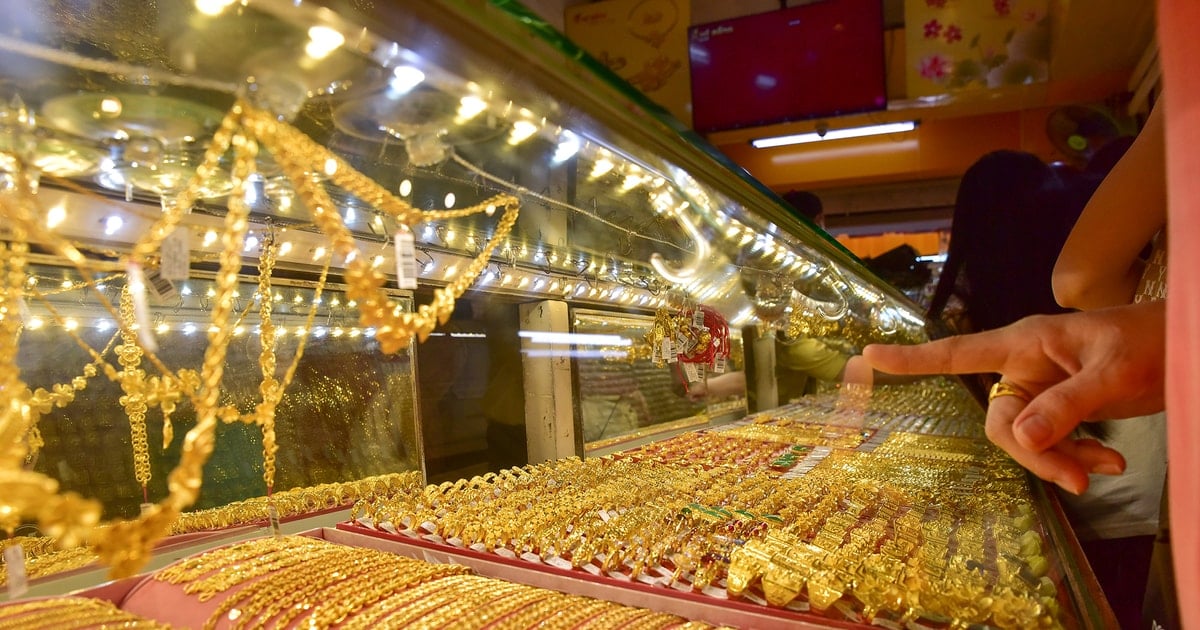
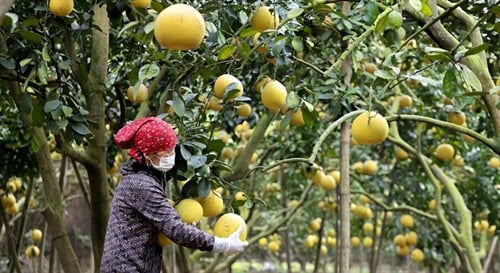












Comment (0)